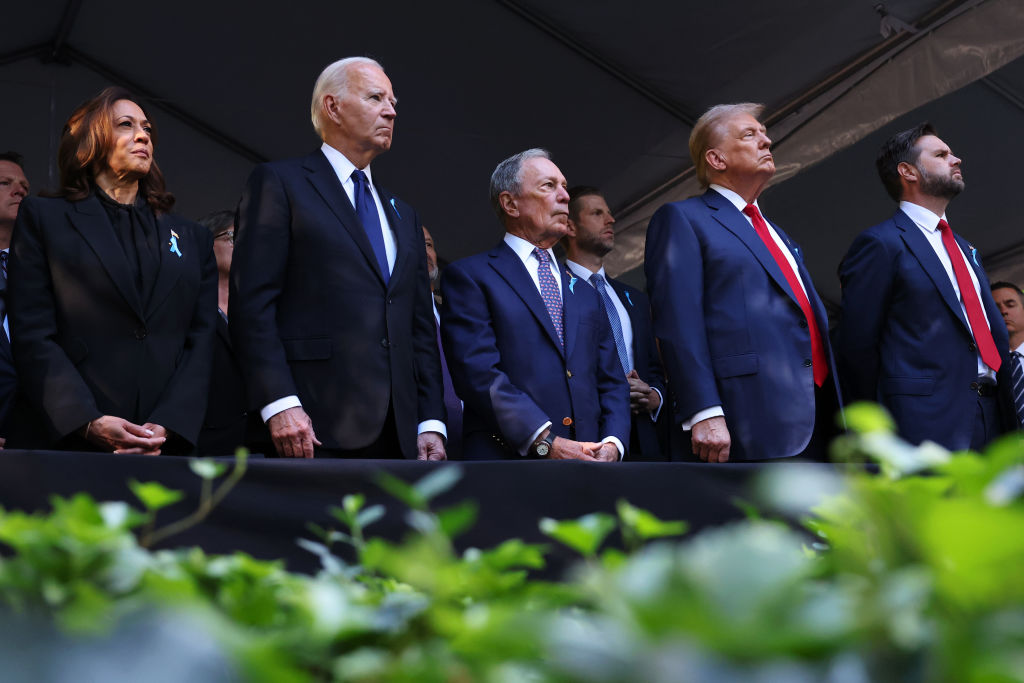As the 2024 presidential campaign enters the final stretch, Kamala Harris and Donald Trump have sought to underline their foreign policy differences. Some of the distinctions are clear. Harris, for instance, promises “unwavering” support to Washington’s treaty allies in Europe and East Asia, whereas Trump frequently criticises them for free-riding on American largesse. Then, of course, there is Ukraine, where Harris’s “stay the course” preference runs counter to Trump, who would like the war to end immediately even if it entails Kyiv having to agree to painful compromises.
That is as far as their differences go, however. Indeed, both candidates remain firmly attached to the idea of American hegemony. Take Trump: the former president promises to bring back a “peace through strength” doctrine, which ensures Washington remains atop the world hierarchy. For instance, when the European Union sought to build an independent military capability outside the US-dominated Nato framework, the Trump administration issued a letter to Brussels threatening consequences. And despite all the talk during his first term, Trump did not reduce US defence commitments in Europe, and in the end called for the redeployment of only 12,000 troops — many of whom would have moved from Germany to elsewhere in Europe.
Harris, meanwhile, is a liberal interventionist and an Atlanticist who has doubled down on America’s Nato commitments. She has represented the Joe Biden administration in various European security conferences with a consistent message in her back pocket: Washington is fully invested in the transatlantic alliance and wouldn’t dare leave European allies in the lurch.
The truth is that Trump and Harris have been frustratingly vague when it comes to the specific policies they would pursue abroad if elected. The former president casts himself as someone who will keep the United States out of war, even though he has flirted with bombing Mexico to take on the cartels, deepening US involvement in the Middle East by backing Israel unconditionally, and confronting China through exorbitant tariffs.
Based on what little she has said, Harris’s foreign policy looks nearly identical to her current boss, President Joe Biden. Despite her roots on the Left of the Democrats, she is pro-Israel; in Asia, she has been a strong supporter of multilateral groups such as ASEAN while favouring strong export controls to lock in US tech dominance. Although Trump was more sceptical of multilateral groupings in Asia and tended to disregard them as a waste of time, his policy on China shares the same aims as Harris’s.
Primacy has always been costly, but with new peer and near-peer competitors, the cost is rising further. Maintaining a global network of hundreds of military installations in 70 countries with well over 200,000 forces deployed at any given time is an expensive enterprise. When the goal is global dominance, every crisis becomes a priority, extending limited US military, economic and diplomatic resources around the world on behalf of allies and partners who eventually grow accustomed to the support and expect it to continue indefinitely. Add in the costs associated with developing advanced weapons systems and it’s no wonder defence spending is likely to reach $1 trillion in a few years.
Isolationists and pacifists suggest there is no need for this exorbitance, but Trump and Harris don’t have answers for these critiques. Neither has acknowledged the limits of US military resources or defined realistic foreign policy priorities that match ends with means. Similarly, neither seems likely to curtail the US defence budget or to downsize military commitments abroad. While they both want to move on from the legacies of wars in Iraq and Afghanistan, neither is ready to reduce the US military presence in the Middle East in a meaningful way. The same is true in Europe.
For Americans who increasingly favour a smaller US role in the world, this is bad news. At this point only a radical shift in US foreign policy can pull the country out of the expensive doom loop that decades of misguided policy have created. To engineer this shift, the next president will have to accept the increasingly multipolar world for what it is and adapt US policy accordingly.










Join the discussion
Join like minded readers that support our journalism by becoming a paid subscriber
To join the discussion in the comments, become a paid subscriber.
Join like minded readers that support our journalism, read unlimited articles and enjoy other subscriber-only benefits.
Subscribe